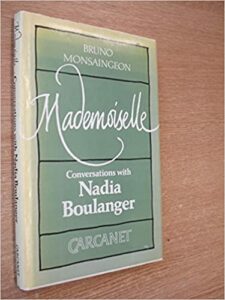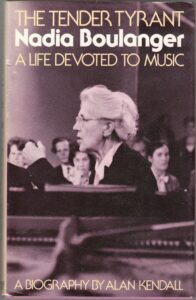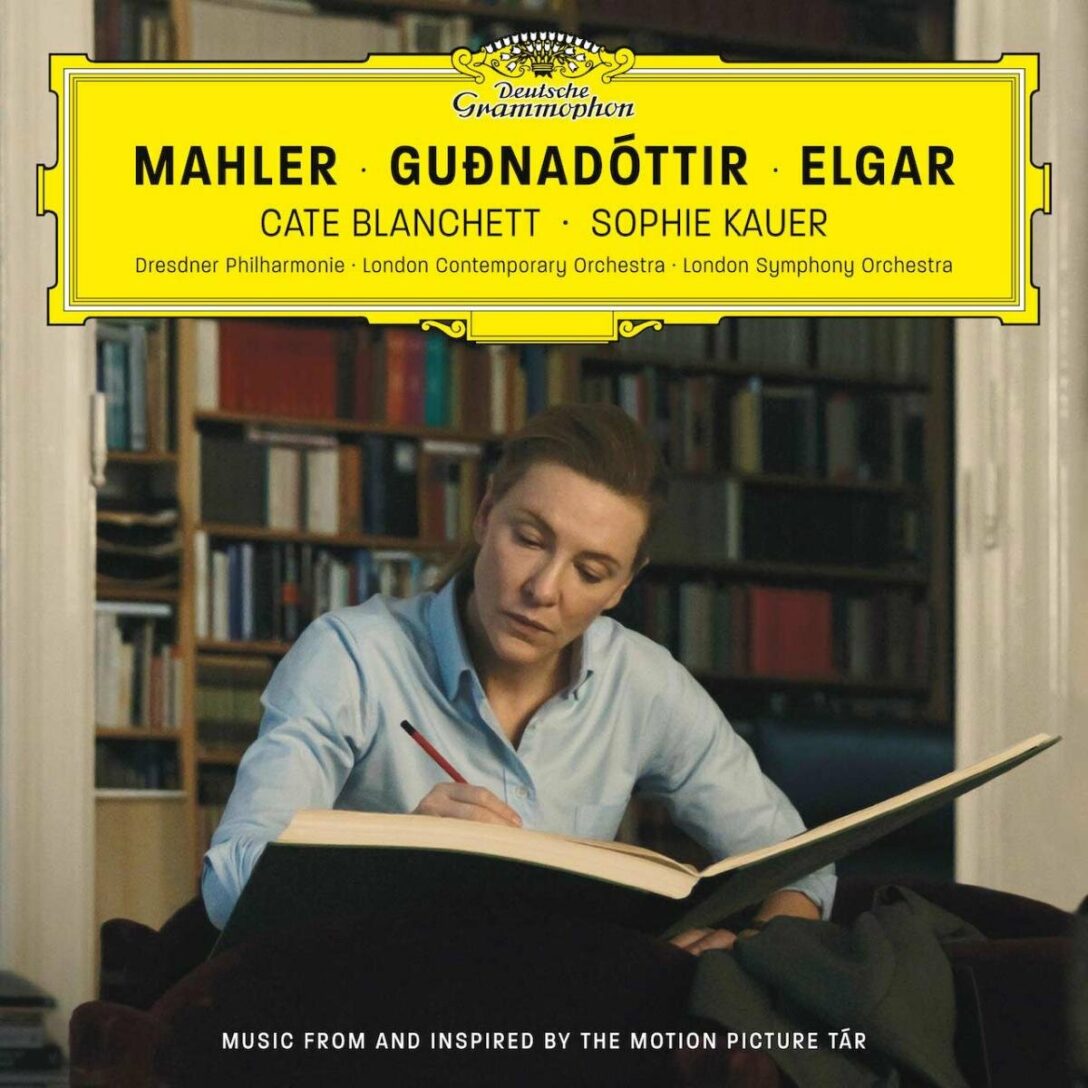The starting point for today’s blog about recent arrivals in our classical recordings collection is Music from and inspired by the motion picture Tár. Todd Field’s 2022 psychological drama about conductor Lydia Tár — an ambitious, driven, but chaotic woman (ferociously realised by Cate Blanchett) who is appointed director of the Berlin Philharmonic —has won many awards and been nominated for many more. Tár has also proved divisive for its depictions of the musical world and for its presentation of Lydia Tár as a woman and conductor in a profession where male composers and conductors still dominate the repertory and the podium. John Mauceri has summarised the debate in a pithy New York Times op-ed. Deutsche Grammophon has also climbed aboard the Tár train with a ‘multi-faceted concept album‘ that includes new pieces by Hildur Guðnadóttir alongside extracts from Elgar’s Cello Concerto in E minor, and Mahler’s Symphony No. 5. The concept behind the album, as director Todd Field explains, is ‘to invite the listener to experience the messiness involved in the making of music’ and the CD includes spoken-word content, rehearsal discussion, and short takes from recording sessions. If you have seen, loved, or loathed Tár, here is a great opportunity to hear new work by Guðnadóttir. The music is performed by the London Contemporary Orchestra, Dresden Philharmonic, London Symphony Orchestra, and the New Trombone Collective, with Cate Blanchett herself at the helm.
Turning from the world of fictional conductors to real ones, here is a selection of CDs, DVDs, and books by and about some eminent women currently at the top of their profession.
Candide / Bernstein, Leonard
One conductor whose criticism of Tár has been vociferous is one of the most eminent in her profession Marin Alsop, the first woman to be appointed director of a major USA orchestra, the Baltimore Symphony, in 2007. After gaining degrees in violin performance at Julliard School, Alsop was rejected three times by their conducting programme, before finding success by founding her own ensembles. In 1989 she won the Koussevitsky Prize for conducting at the Tanglewood Festival, the first time that the prize was awarded to a woman. At this Festival she also met Leonard Bernstein, who would become her mentor. Since that time, Alsop has conducted many of the world’s major orchestras in concerts and recordings. In 2013, at the time when she conducted the Last Night of the Proms, Alsop spoke of some of the residual prejudices facing women who wanted to conduct. Here, Alsop conducts a live semi-staged performance of Candide by her mentor Leonard Bernstein, three decades after he recorded the piece with the same orchestra. Guided by Alsop, the London Symphony Orchestra and Chorus play and sing with precision and wit. The cast includes Leonardo Capalbo (Candide) Anne Sofie von Otter (The Old Lady), Thomas Allen (Dr. Pangloss), Jane Archer (Cunegonde), and Marcus Farnsworth (Maximilian). All the singers bring the acerbic text (with contributions from Dorothy Parker, Richard Wilbur, and Stephen Sondheim) to life with their committed characterizations.
 Eine kleine Nachtmusik ; Bassoon concerto ; Three divertimenti / Mozart, Wolfgang Amadeus
Eine kleine Nachtmusik ; Bassoon concerto ; Three divertimenti / Mozart, Wolfgang Amadeus
Appointed musical director of Glyndebourne Touring Opera in 1981, and artistic director of the London Mozart Players in 1984, Jane Glover specialises in baroque/classical repertoire, and opera. She has worked at many opera houses in Europe, and in 2013 became just the third woman to conduct a production at the Metropolitan Opera in New York (the first was Sarah Caldwell in 1976; the second was Simone Young in 1998). In addition to her conducting career, Glover is also the author of Mozart’s Women and Handel in London: a genius and his craft. Glover’s recording of Mozart’s Bassoon Concerto, divertimenti, and Eine kleine Nachtmusik is one of many that she has made with the London Mozart Players. The ensemble plays with precision and style, while Glover’s understanding of this repertoire helps to infuse the familiar Eine kleine Nachtmusik with nuance and wit. Grace and lyricism, as well as remarkable agility in the virtuosic passages, characterise Yoshiyuki Nakanishi’s performance of the solo part in Mozart’s Bassoon Concerto.
Symphonies nos. 2 & 21 / Weinberg, M.
Lithuanian conductor Mirga Gražinytė-Tyla began her career with appointments at Theater Heidelberg, Opera Bern, and the Landestheater in Salzburg. In 2016, at the age of 29, she was appointed Music Director of the City of Birmingham Symphony Orchestra, a position she held until 2022 when she became their Principal Guest Conductor. In addition to being the first woman to be Music Director of the CBSO, Gražinytė-Tyla also became the first female conductor to sign an exclusive recording contract with Deutsche Grammophon.
An advocate for the music of Polish-born composer, Mieczysław Weinberg (1919-1996), Gražinytė-Tyla chose Weinberg’s Symphonies No. 2 and 21 with Kremerata Baltica and the CBSO for her first Deutsche Grammophon recording. The artistry of violinist Gidon Kremer provides an additional eloquence to Symphony No. 21. Weinberg’s friendship with Shostakovich, grounded in their appreciation of each other’s music, and deep personal affection, helped the two composers to endure the many vicissitudes of artistic activity at the mercy of Andrei Zhdanov. Shostakovich would dedicate his Symphony No. 10 to Weinberg, and exchanges and borrowings of musical ideas can be found in the work of both composers. In Gražinytė-Tyla’s recording we hear two works from Weinberg’s early and late career. His second symphony, for string orchestra dates from 1946, at the time when the composer had learned for sure of the murder of his parents and younger sister in the Holocaust. Symphony No. 21 was completed in 1991, Weinberg’s final work for full orchestra. Subtitled ‘Kaddish’, the symphony is a memorial to those who suffered and perished in the Warsaw Ghetto. Allusions to Gustav Mahler’s song ‘Das irdische Leben‘ (‘The Earthly Life’) in the first section of the Symphony establish Weinberg’s piece as a desolate one, a monument to the dead riven with anger as well as anguish.
L’incoronazione di Poppea
The Orchestra of the Age of Enlightenment, Glyndebourne Festival Chorus, and a cast of Europe’s leading baroque specialists have made this DVD of a 2008 production of Monteverdi’s L’incoronazione di Poppea a landmark in baroque opera performance. Director Robert Carsen and production team Michael Levine (set), Constance Hoffman (costumes), and Peter van Praet (lighting) have created a ‘stark world dominated by the visual metaphor of crimson drapes that decorate adulterous bed chambers and clothe sadistic tyrants.’ Musically, this is a stunning Poppea. The dynamic conductor and harpsichordist Emmanuelle Haïm directs the orchestra and singers with a visceral intensity entirely appropriate to the themes of Monteverdi’s opera. Haïm trained initially as a harpsichordist, and later joined William Christie’s Les Arts Florissants as a continuo player and assistant to Christie. Since 2000, Haïm has combined directing her own ensemble Le Concert d’Astrée with appearances with many other ensembles. Haïm has recorded extensively on the Erato label, including a beautiful interpretation of Handel’s Messiah that we hold in our collection.
Runner ; Music for ensemble and orchestra / Reich, Steve
Susanna Mälkki, currently in the final year of her seven-year tenure as Chief Conductor of the Helsinki Philharmonic Orchestra, is a Finnish conductor whom some readers may remember appearing with the New Zealand Symphony Orchestra in 2006. Then, she directed performances of Beethoven’s and Sibelius’s Violin Concertos with Vadim Repin, Mahler’s Symphony No. 5, and Stravinsky’s Firebird. Her career has taken her around the world many times since, regularly conducting leading orchestras in Europe and North America, including a term as Principal Guest Conductor of the Los Angeles Philharmonic. In this 2022 release, Mälkki directs the same orchestra in a series of ensemble works by Steve Reich, recorded live in the Walt Disney Concert Hall. Both Runner and Music for Ensemble and Orchestra are recent works, dating from 2016 and 2018 respectively, and are minimalist in design. The discipline of the orchestra and conductor alike come to the fore in this music, where note value and pulse are some of the composer’s primary organisational principles.
 Looking back to the beginning of the twentieth century, the great French composer and pedagogue Nadia Boulanger (1888-1979) began her conducting career in 1912 in a concert by the Paris Société des Matinées Musicales. Over the next decades she would be the first woman to conduct an array of leading orchestras, including the Boston Symphony Orchestra, and the Philadelphia Orchestra; in Britain she broke the same ground with the Hallé and London Philharmonic Orchestras. Although Wellington City Libraries holds no recordings of the performances she directed, you can read about Boulanger in her own words — almost — in Mademoiselle : conversations with Nadia Boulanger. Bruno Monsaingeon presents a series of semi-imagined conversations with Boulanger, ‘collected’ in ‘intermittent encounters’ in the final decade of her very long life. Monsaingeon organised Boulanger’s comments and reflections in the form of dialogues. Boulanger’s reflections include memories of performances by Yehudi Menuhin, her ideas about how a student of composition should and should not be ‘taught’, questions of interpretation and ‘transmission’ of music, and her connection with her many pupils. Many composers and musicians also make an appearance through their own memories of Boulanger, as a teacher, a competition adjudicator, or friend and colleague.
Looking back to the beginning of the twentieth century, the great French composer and pedagogue Nadia Boulanger (1888-1979) began her conducting career in 1912 in a concert by the Paris Société des Matinées Musicales. Over the next decades she would be the first woman to conduct an array of leading orchestras, including the Boston Symphony Orchestra, and the Philadelphia Orchestra; in Britain she broke the same ground with the Hallé and London Philharmonic Orchestras. Although Wellington City Libraries holds no recordings of the performances she directed, you can read about Boulanger in her own words — almost — in Mademoiselle : conversations with Nadia Boulanger. Bruno Monsaingeon presents a series of semi-imagined conversations with Boulanger, ‘collected’ in ‘intermittent encounters’ in the final decade of her very long life. Monsaingeon organised Boulanger’s comments and reflections in the form of dialogues. Boulanger’s reflections include memories of performances by Yehudi Menuhin, her ideas about how a student of composition should and should not be ‘taught’, questions of interpretation and ‘transmission’ of music, and her connection with her many pupils. Many composers and musicians also make an appearance through their own memories of Boulanger, as a teacher, a competition adjudicator, or friend and colleague.
 As Monsaingeon rather regretfully noted, Boulanger was not disposed to supply her biographers with personal revelations and regarded interviewers with some suspicion. Alan Kendall, another aspiring biographer of Boulanger in The Tender Tyrant: a life devoted to music, found that his subject was initially cooperative, but gradually withdrew from his project. Therefore, Kendall’s book is less a biography than a broader appreciation of Boulanger’s life and work, crafted through interviews with Boulanger herself, with her pupils, and with her colleagues. Kendall’s sources, drawn together, form a picture of Boulanger’s powerful intellect and personality, as well as insights into her compositions and conducting. In addition to this book’s illumination of Boulanger’s aesthetics and pedagogy, Kendall’s exploration of her friendship with Stravinsky and her understanding of both the technical and expressive qualities of his music offers great insights into both composers.
As Monsaingeon rather regretfully noted, Boulanger was not disposed to supply her biographers with personal revelations and regarded interviewers with some suspicion. Alan Kendall, another aspiring biographer of Boulanger in The Tender Tyrant: a life devoted to music, found that his subject was initially cooperative, but gradually withdrew from his project. Therefore, Kendall’s book is less a biography than a broader appreciation of Boulanger’s life and work, crafted through interviews with Boulanger herself, with her pupils, and with her colleagues. Kendall’s sources, drawn together, form a picture of Boulanger’s powerful intellect and personality, as well as insights into her compositions and conducting. In addition to this book’s illumination of Boulanger’s aesthetics and pedagogy, Kendall’s exploration of her friendship with Stravinsky and her understanding of both the technical and expressive qualities of his music offers great insights into both composers.


